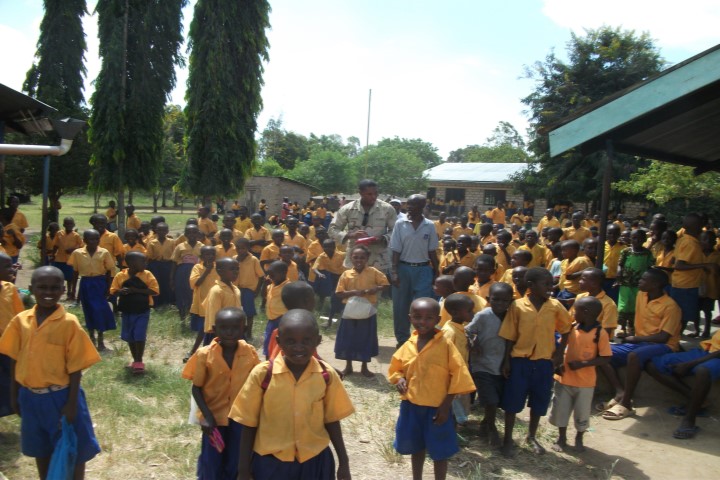When 13-year-old Natasha Wanjiru escaped the slums of Nairobi, Kenya to study in America on a scholarship with Bridge Academy, she didn’t forget about her siblings and countless other children who weren’t as fortunate.


When 13-year-old Natasha Wanjiru escaped the slums of Nairobi, Kenya to study in America on a scholarship with Bridge Academy, she didn’t forget about her siblings and countless other children who weren’t as fortunate.
Two years later, while home in Nairobi during summer break, Wanjiru spoke about her time at the prestigious Episcopal High School in Alexandria, Virginia, and how she’s now working to expand opportunities for young girls back home to follow in her footsteps, Standard Media reports.
Her journey started when she joined a Bridge International Academy in Kenya with her brother in 2013 and saw a poster offering scholarships to study in America for top students, according to the Bridge website.
“I got really inspired,” she said. I never knew that something that great could happen to me. So I worked really hard because I knew if I could study in the United States it would really help my family.”
Wanjiru received high marks on achievement tests and initially landed a scholarship through the Kenya Education Fund to cover tuition her mother could not afford at Moi Girls High School in the Kamusinga slums of Nairobi in 2016. After only about five months at the school, she was selected by Bridge International Academies to study at Episcopal High School starting in ninth grade.
She’s now working to recruit her school community in America to contribute to her “change4change” project to sponsor kids from her slum to attend Kenyan secondary schools.
“Teachers and my schoolmates are passionate about changing the lives of children in Kenyan slums. They have been contributing to the course and we have managed to sponsor 30 students,” she said. “There are 18 others with individual sponsors.”
Wanjiru said it’s an effort inspired by her own experience and fueled by a passion for social justice and equal rights.
“The problem with the society is that a single negative narrative of poverty associated with children in slums has curtailed our ability to see the potential in them,” Wanjiru said, referencing a TED talk from her favorite fiction author Chimamanda Adichie of Nigeria.
“I get disturbed at Episcopal when I imagine the number of girls, especially in slums and rural areas, who do not go to school due to lack of fees and end up in early marriages,” she said. “I am working towards getting an organization that is actively involved in social justice issues like education.”
While it’s difficult to know how much Episcopal High School contributed to Wanjiru’s sense of social justice and equal rights, it’s clear those virtues flourished when she landed in America.
Researchers with the Institute for Advanced Studies in Culture noted how urban public high schools value compassion in “The Content of Their Character”, an analysis of character education in a wide variety of U.S. schools.
“The teachers, staff, and administrators all deeply prized compassion,” researches wrote, “especially in each other, and then to some extent in their students.”
The Jubilee Centre for Character and Virtues offers lessons for educators to help students consider how they practice compassion in their lives. One lesson, “Build Your Own Virtue: Compassion” encourages students to draw inspiration from literature and history, and to look to role models that bring the virtue to life.